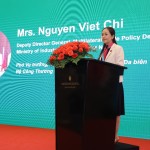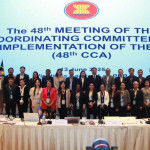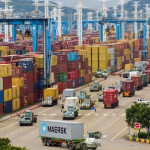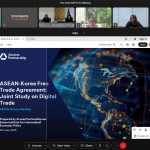Total number of posts 463.
On November 5 in Hanoi, the Trade Promotion Agency (Ministry of Industry and Trade) organized a seminar on trade promotion to Asian markets. The event aimed to discuss the potential and advantages of Vietnamese exports in the region, as well as how to leverage Free Trade Agreements (FTAs) to boost exports to Asian markets.
The seminar featured speakers from the Multilateral Trade Policy Department (Ministry of Industry and Trade), the Vietnam Trade Office in Indonesia, and the Intellectual Property Office (Ministry of Science and Technology).
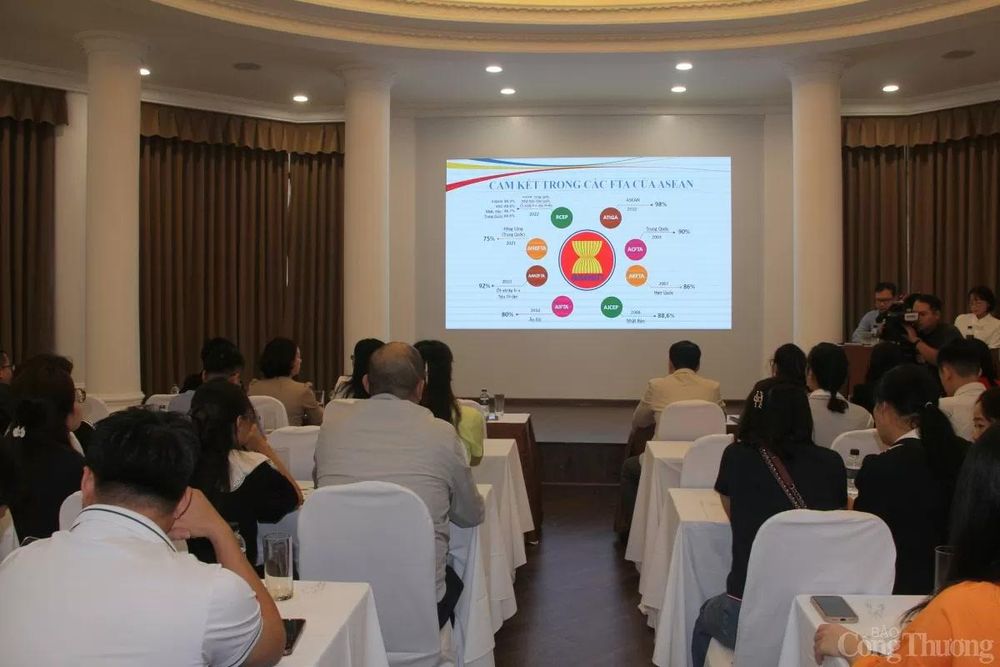
At the seminar, Mr. Quyen Anh Ngoc, Director of the ASEAN Division, Multilateral Trade Policy Department (Ministry of Industry and Trade), provided an overview of the free trade agreements (FTAs) of which Viet Nam is a member, and specifically the Regional Comprehensive Economic Partnership (RCEP). Mr. Ngoc stated that Vietnam currently participates in 19 FTAs, both bilateral and multilateral, with 16 in effect, including 8 signed under ASEAN. The RCEP agreement is an agreement between 10 ASEAN countries and 5 ASEAN partner countries—China, Japan, South Korea, Australia, and New Zealand—and has been effective for Vietnam since January 1, 2022.
Under RCEP, Vietnam committed to eliminating or reducing import taxes, no export tax commitments. ASEAN countries have eliminated tariffs for Vietnam on approximately 85.9%-100% of tariff lines, with the longest timeline ranging from 15-20 years from the date the FTA became effective. Furthermore, other 5 countries have eliminated tariffs for Vietnam on about 90.7%-98.3% of tariff lines, with a maximum schedule of 15-20 years from the FTA’s effective date.
A unique aspect of RCEP compared to other FTAs is that member countries apply different tariff commitments to various partners for certain products, while other FTAs apply a single set of tariff commitments.
According to Mr. Quyen Anh Ngoc, some of Vietnam's key export products that other countries have removed tariffs on immediately upon RCEP’s effect include seafood, meat, fruits, and agricultural products, as well as various machinery, mechanical equipment; tools, machinery, computers, and electronic components. Additionally, certain footwear and its parts and accessories; textile materials, garments, clothing, and chemicals are also included.
In the context of a potential export market, to fully benefit from FTAs, businesses need to research and understand Vietnam’s commitments in FTAs relevant to their industries, sectors, and business markets; proactively innovate, improve their competitiveness, participate in new supply chains, and develope appropriate business strategies with evolving trends. By leveraging advantages and actively adapting, Vietnamese goods can assert their position in the export market, contributing positively to national economic development.
To take advantage of FTA benefits and promote exports to the Indonesian market, Mr. Pham The Cuong, Commercial Counselor in Indonesia, provided some specific insights to enter this market.
The Indonesian market is considered favorable due to characteristics such as a shared Asian culture, a relatively flexible market, and close geographic proximity, which helps reduce costs. Vietnamese goods also have a comparative advantage in various agricultural and aquatic products. However, this market also presents certain challenges for Vietnamese businesses, such as high protective measures like quotas and requirements for import licenses, Halal certification, national standards (SNI), and port regulations. Indonesia also frequently applies trade remedies measures and has a segmented geography with many islands, leading to increased logistics costs.
Recognizing these challenges, Vietnamese businesses need to proactively develop suitable market entry strategies for Indonesia, leverage FTAs, thoroughly understand market regulations and standards, and enhance the quality and diversity of their products to increase competitiveness. For example, to promote exports to this market, businesses should proactively obtain Indonesia’s Halal certification and SNI standards certification. Additionally, they should actively coordinate with relevant Vietnamese authorities if Indonesia initiates trade remedies measures related to their products in accordance with their rights.
To avoid fraud or trade disputes, Mr. Pham The Cuong recommended that businesses exercise caution if price negotiations or contracts progress quickly, with minimal bargaining and acceptance of high prices; and avoid providing legal documents across multiple entities. Therefore, before signing contracts, businesses should require Indonesian partners to provide business registration certificates (NIB) and tax identification numbers (TIN).
Moreover, businesses should verify partners through the Vietnam Trade Office, the Indonesian Chamber of Commerce and Industry, Indonesian associations, and the Vietnam National Credit Information Center (CIC). Importantly, businesses should avoid transferring deposits to personal accounts. Contracts should include stringent terms, with particular attention to clauses protecting business rights, including provisions on disputes and complaints.
In addition to traditional import-export topics, Dr. Khong Quoc Minh, from the Intellectual Property Office, Ministry of Science and Technology, highlighted common issues and solutions for addressing intellectual property (IP) matters related to Vietnam when exporting to Asian markets with FTAs. Accordingly, businesses need to proactively register IP protection when exporting, respect others’ IP rights, and comply with IP regulations in the export market. To quickly address IP issues and handle any arising IP protection matters in the export market, businesses should adopt the practice of using foreign IP representation services. This approach helps mitigate IP-related risks and enhances the likelihood of success in international markets."







